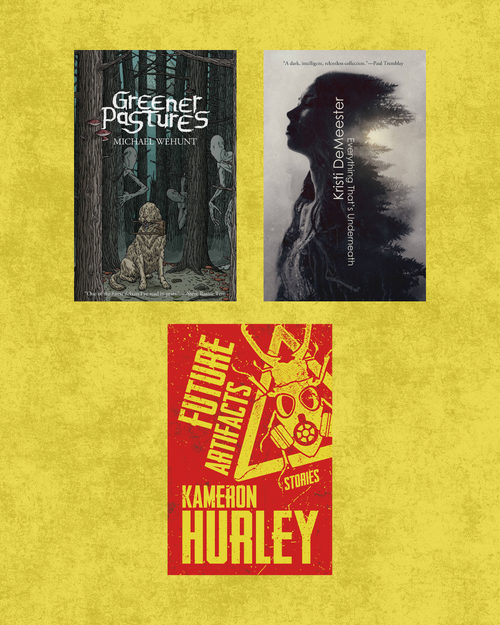by guest blogger R. Jean Bell
As a book devourer, I learned the magic of libraries at a young age. My earliest memory is of getting my key to the kingdom--my very own library card, which back then was a stiff paper card with a metal plate attached embossed with my lender number. Appended to this memory is that of my mother having an argument with the librarian, who was trying to insist on what type of books I should be borrowing. The librarian wanted me looking only at things appropriate for the average three-year-old, but those easy reader picture books were far below my reading level. (My mom got her way and started a pattern of pretty free book access for me.)
My years of easy access to public, school, and college libraries spoiled me rotten. When I moved to Denmark, I discovered how it felt to have access only to libraries that didn't really meet my reading needs. Not that the country has a poor library system, but a book devourer of English language books is not the customer type to which it caters.
It was first when I read Maurice Broaddus's "The Legacy of Alexandria" in Apex Magazine that I started thinking beyond the magic to the actual power. How people in power can control and limit library access in attempts to control the population. How I felt looking at a glorious library filled with books in a language I could barely read at first--that is how so many marginalized individuals feel looking at a library filled with books that do not reflect them, their identity and their experience.
I am once again lucky. My library system here has updated with modern opportunities and now I again have access to a wide range of books in English that I can devour freely (though only two at a time). But I make sure I borrow lots of books featuring marginalized characters. First of all, they're great reads. But also because I want the library system to see lots of demand on those books so they're there for folks for whom there aren't so many available that reflect their experience.
I noticed with my expanded reading that lots of authors explore the power of libraries and how they can impact people's lives in interesting ways.
- The Invisible Library series by Genevieve Cogman, which starts with a book of the same title. In a multiverse what makes each universe unique is the books only it creates. Irene is a librarian tasked with collecting these unique and rare titles. It's a series with a number of books and lots of adventures.
- The Great Library series by Rachel Caine. This begins with Ink and Bone. I've only read a few in the series so far, but it's a fascinating read that's very thought-provoking on how library control and limited book access impacts society.
- "A Witch's Guide to Escape: A Practical Compendium of Portal Fantasies" by Alix E. Harrow. This short story also from Apex Magazine. I can't ignore a piece like this in this discussion. It's about what libraries can offer when they're allowed to.
- Hell's Library by A. J. Hackwith. Unfortunately my library only offered the second book in the series, The Archive of the Forgotten, but it's an excellent read and I'm sure it would be even better reading things in order. Can you imagine a Library of the Unwritten? Somewhere books go when their authors fail them, where their characters may even come to life. It'd definitely contain at least a few volumes of mine.
- The Library of the Dead by T. L. Huchu is the first in a series. The library doesn't feature as strongly as in some of the others I've mentioned, but it is where the main character finds friends and knowledge to build strength and I'd love to get the chance to see what more the library may offer in future volumes.
- Discworld by Terry Pratchett. The library of the Unseen University and its simian librarian make recurring appearances throughout the series. A library in which the books are chained to the shelves and one must use great caution exploring it definitely deserves a mention when discussing the power of libraries. As does a librarian of that caliber.
- Lirael by Garth Nix from the Abhorsen series. I am including this one because of the impact the library, and the role as librarian, has on the main character. I think that sense of finally feeling like you belong somewhere is one of those powers of libraries that should not be forgotten.
Libraries can be such a positive force in people's lives, if we let them. These books and stories explore and celebrate aspects of our relationships with libraries and what they can be and do. What kind of power have libraries had in your lives? What power will your local library be in the lives of the children of today and tomorrow?
~~~
Since before she can remember, R. Jean Bell has devoured any available reading material. In recent years, books--averaging one a day--have proven the most effective relief from chronic pain. She firmly believes shoes are torture devices, so she trained her border collie to remove them. Connect with her at rjeanbell.com.







